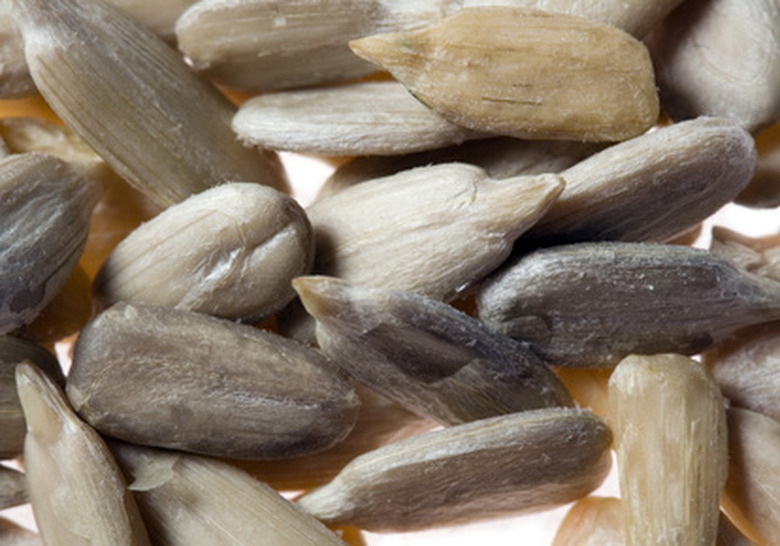What Is Primary Dormancy?
When a seed germinates it resumes embryonic growth. This requires correct environmental conditions. Temperature must be optimal, while enough water and oxygen must be available. Seed dormancy occurs when a viable seed will not germinate despite necessary environmental conditions. Primary dormancy is the term for when the seed is released from the plant already in a dormant state. This differs from secondary dormancy, when the seed becomes dormant after being released due to environmental factors.
Causes of Primary Dormancy
Causes of Primary Dormancy
The two types of primary dormancy are called embryo dormancy and coat-induced dormancy. Embryo dormancy is caused by an inherent characteristic of the embryo, most often growth inhibitors or lack of growth enzymes. Coat-induced dormancy is caused by the seed coat. Other enclosing tissues, such as endosperm, pericarps, or extrafloral organs can cause coat-induced dormancy. There are five basic mechanisms that cause coat-induced dormancy. These mechanisms are mechanical constraint, oxygen impermeability, growth inhibitors, and blocked water uptake.
Mechanical Constraint
Mechanical Constraint
During germination, the radicle (the part of the embryo that turns into the primary root) usually penetrates the seed coat. However, in some cases of dormancy the seed coat is too rigid to break. A common cause of mechanical restraint is lignification. This means that the cell wall has become impregnated with lignin, according to the Food and Agriculture Organization of the United Nations. Lignin is an amorphous material comprised of phenylpropanoid compounds. Nonlignified tissues can also suppress embryonic expansion. For example, the endosperm of lettuce seeds can prevent germination. Cell wall-degrading enzymes may be required to weaken the endosperm in order to allow germination.
Oxygen Impermeability
Oxygen Impermeability
Experts believe that seed coats may inhibit germination by limiting oxygen to the embryo, according to Plant Physiology Online. Studies have suggested an infusion of oxygen can cause germination of a previously dormant seed. This has been done by treating the seed coat with concentrated oxygen or by making a small hole in the coat with a pin, thus providing evidence for the connection between oxygen permeability and dormancy. However, an article in Journal of Experiment Botany suggests that oxygen permeability may not be a factor for some seeds. There is still much unknown about the connection between oxygen's role in dormancy.
Growth Inhibitors
Growth Inhibitors
Growth inhibitors may also be the cause of dormancy. These enzymes prevent a seed from germinating. Seed coats and pericarps may contain high levels of growth inhibitors, which repress germination. Also the seed coat may prevent the escape of growth inhibitors causing seed dormancy.
Water Impermeability
Water Impermeability
The inability to absorb water is another possible cause of seed dormancy. Waxy cuticles, suberized layers, and lignified sclereids may all contribute to water impermeability. This type of dormancy is common among plants in arid and semiarid environments.
Embryo Dormancy
Embryo Dormancy
Embryo dormancy is different from coat-induced dormancy because it is not due to factors related to the seed coat. A study by the American Society of Plant Biologists found that growth inhibitors, specifically endogenous abscisic acid (ABA), could cause embryo dormancy. Absence of growth promoters such as giberellic acid (GA) can also cause embryo dormancy, according to Plant Physiology Online.
References
- Plant Physiology Online:Types of Seed Dormancy and the Roles of Environmental Factors
- The Seed Biology Place:Seed Dormancy
- Journal of Experimental Botany:The Role of the Oxygen Permeability of the Seed Coat
- Plant Physiology:Involvement of Endogenous Abscisic Acid in Onset and Release of Helianthus annuus Embryo Dormancy
Cite This Article
MLA
Pham, Le Bach. "What Is Primary Dormancy?" sciencing.com, https://www.sciencing.com/what-is-primary-dormancy-12000204/. 21 July 2017.
APA
Pham, Le Bach. (2017, July 21). What Is Primary Dormancy?. sciencing.com. Retrieved from https://www.sciencing.com/what-is-primary-dormancy-12000204/
Chicago
Pham, Le Bach. What Is Primary Dormancy? last modified August 30, 2022. https://www.sciencing.com/what-is-primary-dormancy-12000204/
